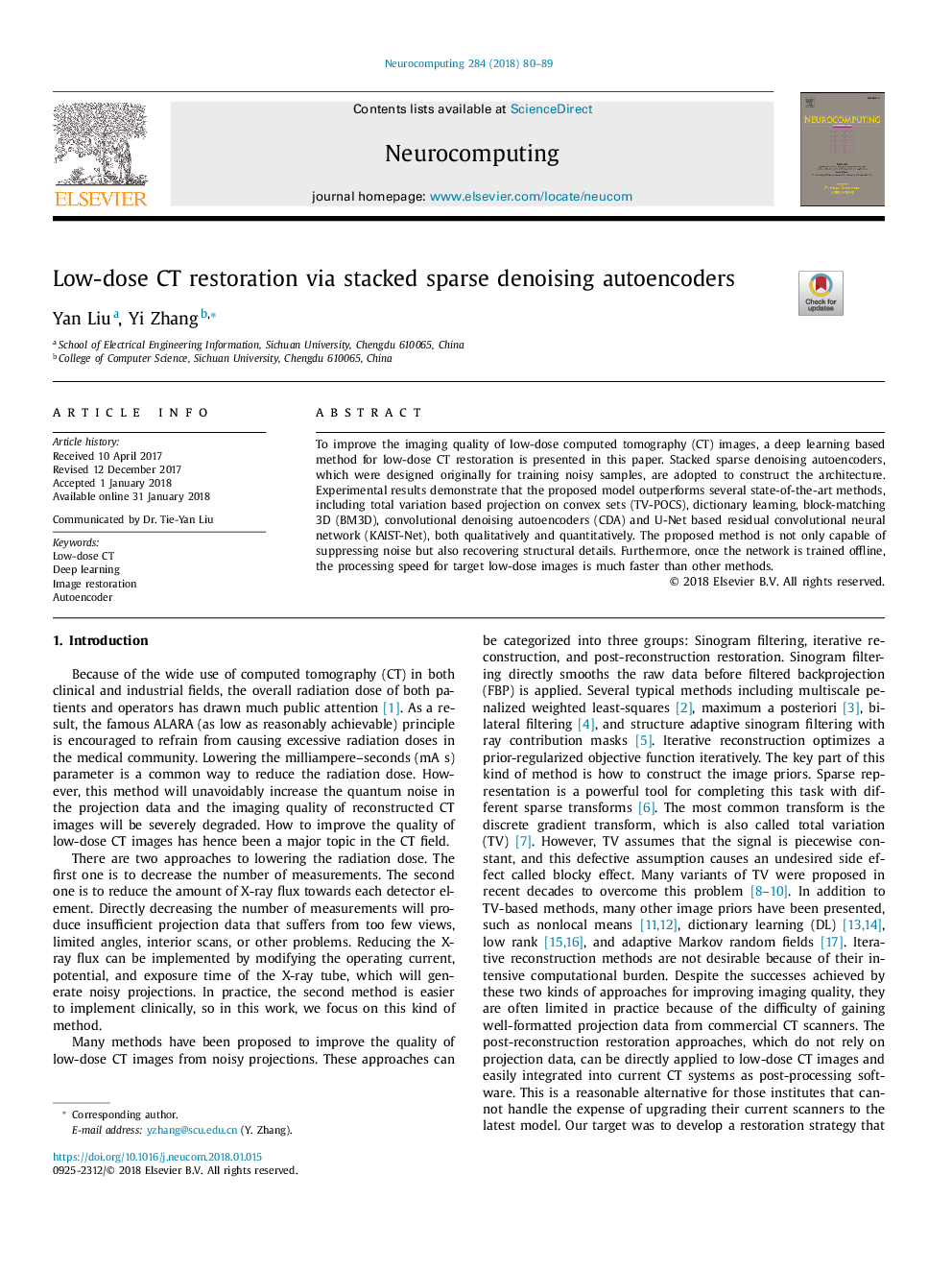| Article ID | Journal | Published Year | Pages | File Type |
|---|---|---|---|---|
| 6864493 | Neurocomputing | 2018 | 10 Pages |
Abstract
To improve the imaging quality of low-dose computed tomography (CT) images, a deep learning based method for low-dose CT restoration is presented in this paper. Stacked sparse denoising autoencoders, which were designed originally for training noisy samples, are adopted to construct the architecture. Experimental results demonstrate that the proposed model outperforms several state-of-the-art methods, including total variation based projection on convex sets (TV-POCS), dictionary learning, block-matching 3D (BM3D), convolutional denoising autoencoders (CDA) and U-Net based residual convolutional neural network (KAIST-Net), both qualitatively and quantitatively. The proposed method is not only capable of suppressing noise but also recovering structural details. Furthermore, once the network is trained offline, the processing speed for target low-dose images is much faster than other methods.
Related Topics
Physical Sciences and Engineering
Computer Science
Artificial Intelligence
Authors
Yan Liu, Yi Zhang,
